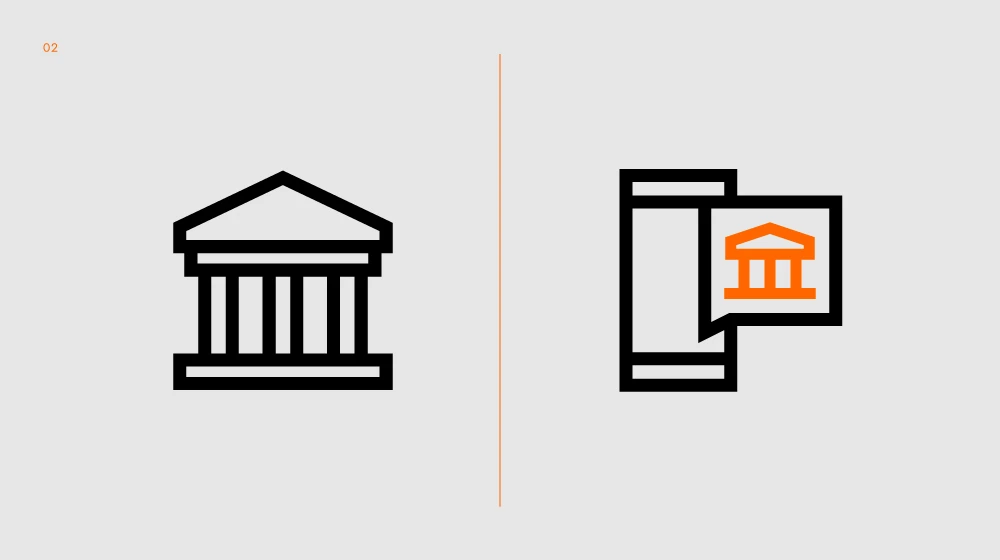In 2025, UAE business banking is undergoing a major transformation. The days when opening a business account meant weeks of paperwork and branch visits are fading fast. Investors and entrepreneurs are now drawn to digital platforms that offer faster onboarding, transparent fees, and smarter tools to manage global operations. The UAE, already a hub for innovation and capital, is leading this shift through a wave of new digital banking UAE solutions designed for modern businesses.
Traditional banks are no longer the only option. A new generation of digital-only banks is giving investors full control over their corporate finances without ever needing to step into a branch. This evolution is changing how companies handle payments, compliance, and cross-border transactions, making UAE business banking more accessible and efficient than ever before.
In this blog, we’ll look at how UAE business banking has changed, what digital-only banks are, how digital banking UAE is reshaping investor behavior, and what this means for the future of doing business in the Emirates.
Table of Contents
Understanding UAE Business Banking `

UAE business banking forms the financial base for every registered company in the Emirates. Whether it’s a mainland firm, a Free Zone business, or an offshore entity, opening a business bank account is essential for handling operations legally and efficiently. In 2025, it continues to be one of the main priorities for new investors entering the market.
How UAE business banking works
Banks in the UAE operate under the supervision of the Central Bank of the UAE (CBUAE), which enforces strict Anti-Money Laundering (AML) and Know Your Customer (KYC) regulations. To open a corporate account, businesses must typically provide:
- A valid trade license
- Proof of business activity
- Company ownership documents
- Passport copies and visa pages of shareholders and signatories
Once submitted, applications undergo a compliance review. Local businesses can often open accounts within a few working days, while foreign-owned entities may face longer verification depending on their structure and the jurisdictions involved.
Most UAE business banking accounts support multiple currencies, allowing companies to send and receive international payments with minimal delay. This flexibility is especially valuable for import-export, tech, and service-based firms that work with clients across different markets.
According to the Central Bank of the UAE’s 2024 financial stability report, the country’s total banking assets reached AED 4.2 trillion, reflecting the strength of its banking infrastructure and investor trust in the system.
Why business banking matters to investors
Choosing the right UAE business banking partner goes beyond convenience. It directly affects how smoothly a business runs day to day. Reliable banking allows investors to:
- Manage cross-border transactions efficiently
- Access trade finance and working capital
- Handle payroll and supplier payments securely
- Build a record of financial credibility for future lending or expansion
A strong UAE business banking relationship also supports other aspects of doing business. Such as applying for investor visas or registering with local authorities.
What Are Digital-Only Banks and Why They’re Taking Over

Understanding what digital-only banks mean
To understand how the financial system is changing, investors first need to know what is digital-only banks in practice. A digital-only bank is a fully online financial institution that operates without any physical branches. Every service, from account opening to transaction approvals, happens through a website or mobile app.
Unlike traditional banks, which rely on physical branches and manual verification, digital-only banks are built entirely on cloud-based systems and automated compliance checks. This allows them to approve business accounts faster, often within a day.
In 2025, digital-only banking has become one of the most talked-about trends in global finance, and the UAE is one of the first countries in the region to embrace it.
In the UAE, the digital banks market is expected to witness a significant increase in net interest income, reaching an estimated value of US$3.02bn by the year 2025.
How they differ from traditional banks
Digital-only banks provide the same core services such as payments, transfers, and multi-currency accounts, but deliver them faster and with less paperwork.
Main differences include:
Speed: Account setup is usually instant, compared to several days at traditional banks.
Accessibility: Everything is managed remotely, with no branch visits required.
Lower costs: Fewer overhead expenses mean lower service fees.
Integrated tools: Many platforms offer spending analytics, invoicing, and accounting integrations.
Security: Advanced verification systems, biometric logins, and encrypted data make digital banking UAE secure and compliant.
Why investors prefer them
Investors in the UAE are increasingly choosing digital-only banks because they simplify operations. With one platform, they can send international payments, view transactions in real time, and manage funds across multiple entities.
A few key reasons driving this shift include:
- Faster onboarding for new businesses.
- Real-time access to account activity.
- Transparent fees and better exchange rates.
- Compatibility with global financial systems.
Leading examples in digital banking UAE include Wio Bank, Zand Bank, and Mashreq NeoBiz, all licensed by the Central Bank of the UAE to serve both individuals and companies. Their digital-first infrastructure is setting the new standard for UAE business banking in 2025.
The Rise of Digital Banking in the UAE: Trends Redefining Business Banking

How the shift started
The UAE’s move toward digital banking UAE is supported by government initiatives to promote cashless and efficient financial systems. The Central Bank of the UAE (CBUAE) has issued digital banking licenses and established regulatory frameworks for digital-only institutions.
Businesses can now open accounts, complete compliance checks, and make international transfers entirely online.
Major trends driving change
Government-backed fintech growth
Regulatory sandboxes and innovation hubs encourage fintech startups and banks to collaborate, improving efficiency in UAE business banking.
Digital-only banks entering the market
Banks like Wio Bank, Zand Bank, and Al Maryah Community Bank operate fully online, offering faster account access and modern digital banking UAE solutions.
AI and automation in compliance
Automated KYC and AML systems speed up account openings and improve accuracy using AI-driven identity checks and risk assessments.
Integration with business tools
Digital platforms link directly to accounting, invoicing, and payroll, letting businesses manage finances and cash flow from one dashboard.
Security advancements
Multi-factor authentication, biometrics, and blockchain tracking keep digital-only banks as secure, or more secure than traditional banks.
Why Investors Are Choosing Digital-Only Banks Over Traditional Ones
Digital-only banks have gained rapid adoption in the UAE because they address the limitations of traditional banks while providing features tailored to modern investors.
Faster account setup and onboarding
One of the biggest advantages of digital-only banks is speed. Investors can open a corporate account in hours instead of days or weeks. Verification, compliance checks, and approvals are automated, eliminating the need for multiple branch visits.
- Immediate account activation for local companies
- Remote onboarding for foreign-owned businesses
- Reduced paperwork and manual documentation
Lower costs and transparent fees
Digital-only banks operate without the overhead of branches, which allows them to pass on cost savings to customers. Investors benefit from lower monthly fees, better foreign exchange rates, and fewer hidden charges.
- Minimal account maintenance costs
- Reduced fees on international transfers
- Clear and upfront pricing on banking services
Real-time financial control
Investors need immediate visibility over their finances. Digital-only banks provide dashboards that show balances, transactions, and analytics in real time.
- Track multiple accounts and currencies simultaneously
- Generate automated reports for accounting or audits
- Monitor cash flow and transactions instantly
Cross-border flexibility
Many investors in the UAE manage companies across multiple jurisdictions. Digital-only banks simplify international payments and reduce transfer delays.
- Multi-currency accounts for seamless global transactions
- Quick transfers to partner banks worldwide
- Compatibility with global financial systems
Integration with business tools
Modern investors expect banking to integrate with their operational software. Digital-only banks often offer built-in accounting and invoicing tools.
- Sync transactions with ERP and accounting platforms
- Automate payroll and supplier payments
- Reduce administrative workload for finance teams
The Impact on UAE’s Financial Ecosystem and Business Growth
The rise of digital-only banks and broader adoption of digital banking UAE are changing more than just individual investors’ experiences. These shifts are reshaping the country’s entire business and financial ecosystem, influencing how companies operate, how capital flows, and how the UAE maintains its position as a regional investment hub.
Encouraging business formation
Faster and more accessible banking options make it easier for new companies to launch. Investors and entrepreneurs no longer face long delays in opening accounts, which can often slow down company registration and initial operations.
- Simplified account opening reduces barriers for startups
- Faster access to banking services accelerates business launch timelines
- Entrepreneurs can focus on operations rather than administrative delays
Supporting small and medium enterprises (SMEs)
SMEs, which form a significant portion of the UAE’s economy, benefit from digital banking tools that were previously limited to larger corporations.
- Access to multi-currency accounts for international trade
- Online dashboards to manage cash flow and expenses efficiently
- Integration with accounting tools reduces administrative costs
Boosting foreign investment
Digital banking solutions make the UAE more attractive to international investors. The ability to manage finances remotely, track transactions in real time, and operate in multiple currencies lowers friction for foreign businesses entering the market.
- Enhanced investor confidence in UAE business banking
- Easier compliance with regulatory requirements for foreign entities
- Quick onboarding for companies expanding regionally
Driving financial innovation
As investors adopt digital-only banks, traditional institutions are responding with improved online services and digital tools. This competition encourages innovation across the sector.
- Increased adoption of AI and automation in banking processes
- Introduction of value-added services such as integrated accounting, payroll, and analytics
- Enhanced security and fraud prevention measures
Strengthening the UAE’s position as a financial hub
By combining regulatory stability with advanced digital banking UAE services, the country attracts a larger pool of businesses and capital. This strengthens the overall financial ecosystem.
- Higher volume of cross-border transactions
- More companies using digital platforms for corporate operations
- Expansion of fintech partnerships and digital banking solutions
Challenges and Considerations Before Going Fully Digital

While digital-only banks offer speed, convenience, and integration, investors need to understand the potential limitations before relying entirely on these platforms. UAE business banking has evolved, but some aspects still require careful attention.
Regulatory compliance
Even fully digital accounts must meet UAE banking regulations. Businesses are required to comply with KYC and AML rules, which can sometimes slow down account verification or limit certain transactions.
- Foreign-owned entities may face stricter documentation requirements
- Certain industries may have additional licensing needs
- Digital platforms must ensure secure data handling and record-keeping
Limited physical support
Digital-only banks generally operate without branches, which can be a limitation for companies that prefer face-to-face banking for complex transactions or disputes.
- Some services, such as notarized documents, may still require traditional banks
- Investors managing high-value or sensitive transactions may need additional support
- Physical verification may still be required for certain corporate approvals
Service restrictions
Not all digital-only banks offer the full suite of services available at traditional banks. Some products like trade finance, letters of credit, or complex credit facilities may be limited.
- International trade instruments may be unavailable or limited
- Loan options for large-scale projects might require traditional banking relationships
- Some fintech-focused banks may not support all Free Zone-specific requirements
Cybersecurity and operational risks
Although digital banks invest heavily in security, the online nature of their services exposes them to potential cyber threats. Investors must ensure that platforms use strong encryption, multi-factor authentication, and continuous monitoring.
- Phishing or fraud attempts are still possible
- Investors should regularly monitor transactions and set alerts
- Backup processes and secure access protocols are essential
Balancing digital and traditional banking
Many investors find that a hybrid approach works best: using digital-only banks for daily operations, payments, and online management while keeping a traditional bank account for high-value transactions or regulatory purposes.
- Flexibility ensures business continuity
- Access to a wider range of banking products when needed
- Easier navigation of regulatory requirements for complex operations
And there are 8 must-know challenges for entrepreneurs when setting up their business in the UAE that if they don’t fix, might cost them big later.
Future of UAE Business Banking: What 2030 Could Look Like
The rapid growth of digital banking in the UAE is likely only the beginning. By 2030, UAE business banking is expected to become even more integrated, automated, and globally connected. Investors and businesses should anticipate several trends that will shape the next phase of banking in the Emirates.
Greater adoption of open banking
Open banking will allow businesses to securely share financial data with third-party providers. This integration can lead to more customized financial products and services for investors.
- Real-time financial insights and analytics
- Seamless integration with accounting, payroll, and ERP software
- Personalized banking solutions based on transaction patterns
AI-driven financial management
Artificial intelligence will play a larger role in managing business accounts. AI tools can monitor cash flow, predict liquidity needs, and detect potential compliance issues automatically.
- Automated risk assessments for international transfers
- Predictive analytics for budgeting and investment planning
- AI-assisted fraud detection and transaction monitoring
Blockchain and secure digital transactions
Blockchain technology will further improve transparency and security. Businesses may use distributed ledgers for cross-border payments, trade finance, and contract verification.
- Reduced transaction time and costs for international payments
- Immutable transaction records improving audit processes
- Smart contracts to automate business agreements
Fully digital ecosystems for businesses
By 2030, investors may operate entire corporate financial systems within digital platforms. Banking, accounting, payments, and reporting could all exist in a single ecosystem.
- Centralized dashboards for multi-company management
- Instant reconciliation of accounts and transactions
- Streamlined compliance and regulatory reporting
Revolut’s entry marks a turning point
Revolut’s approval from the Central Bank of the UAE to offer Stored Value Facilities and Retail Payment Services (Category II) highlights how international fintechs are entering the local market. While it’s not a full banking license yet, it allows Revolut to provide digital wallet and payment solutions, signaling growing openness in UAE business banking.
This move is expected to:
- Increase competition among digital-only banks operating in the UAE
- Push existing institutions to enhance digital features and reduce service costs
- Encourage foreign investors to view the UAE as a global fintech hub
- Broaden access to modern payment systems for startups and SMEs
The Smart Investor’s Move in 2025

In 2025, UAE business banking is evolving. Traditional banks remain reliable, but digital-only banks now provide faster account setup, real-time insights, and streamlined cross-border transactions.
Despite these advances, many investors face challenges navigating the options. Choosing between traditional and digital banks, understanding regulatory requirements, and managing multiple accounts can be time-consuming and confusing.
At GCG Structuring, we guide investors through company formation, account setup, and selecting the right banking solutions. With expert support, businesses can start operations smoothly, avoid compliance pitfalls, and make the most of modern UAE business banking tools.
FAQ
1. 0 Do I still need a traditional bank?
Only for large transactions or specific regulatory needs.
2. 0 How fast can I open a digital account?
Usually within hours to one business day.
3. 0 Are digital banks secure?
Yes, with encryption, biometrics, and multi-factor authentication
4. 0 Can I handle multiple currencies?
Yes, most digital banks support multi-currency accounts.




